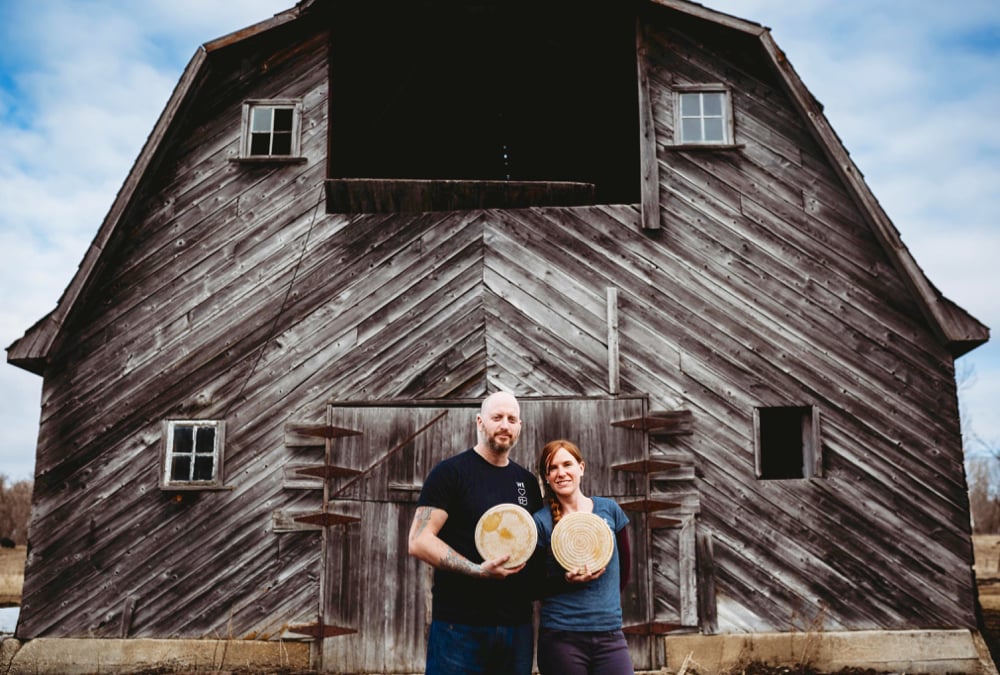Last fall many Manitoba farmers were shocked by double-digit increases in municipal tax bills on farmland because of its higher assessed value, but Keystone Agricultural Producers (KAP) has a plan for relief.
KAP, which has been studying the issue since last August, says on average the assessed value of Manitoba farmland in 2016 jumped 45 per cent.
In many municipalities the value of other property hasn’t increased as much so a greater portion of the municipal and education tax burden has shifted to farmers. And farmers can expect higher land assessments for the next few years because there’s a two-year lag in values.
Read Also

Imbalanced food system cuts into farm profit, advocates say
Canadian grocery prices have risen considerably. Where is that profit going if not to Canadian farmers?
Farm Credit Canada says, on average, Manitoba farmland values increased 12 and eight per cent respectively in 2015 and 2016.
KAP says there are three options to reduce farmers’ tax burden.
“We’re asking KAP members to go to their RM (rural municipality) budget meetings and make their voices heard on these options,” KAP president Dan Mazier said here April 20 during the general farm organization’s quarterly advisory council meeting. “Many of the meetings are happening this week and next, so please go to the KAP website home page for a listing of meetings and for further information.”
While KAP hopes farmers can convince their municipal councils to implement the proposed reforms, it suspects ultimately municipalities will have to unite and press the Manitoba government to lower the percentage used to calculate the portion of tax revenues collected from farmland, currently set at 26 per cent. (Manitoba has 10 classes of property, including farmland, residences, businesses, pipelines and railways.)
“We aren’t seeing an appetite on the province’s part to reduce that portion,” KAP general manager James Battershill told the meeting. “But what we know and believe is that we need additional allies in this lobby effort, so we are really asking our members to go to their council meetings (and) actively lobby and encourage (councils)… to lend a voice with us calling on the provincial government to resolve this with the tools the province has at its disposal.”
And the simplest tool is for government to reduce the portioning value on all farmland taxation province-wide.
But the Manitoba government has told KAP individual municipalities have other options. One is for individual municipalities to apply to the province to reduce the proportioning on farmland. Such a change, if granted, would not apply to education taxes on farmland.
A municipality can also introduce a tax credit to farmland owners without permission from provincial government. It wouldn’t apply to education taxes on farmland either.
The third option is for municipalities to request the provincial government lower the portioned value percentage for all Manitoba farmland.

“In the past the province has made changes to the proportion on farmland so I feel it is the simplest and easiest way to deal with it if we can get the province to agree,” Chuck Fossay, a Starbuck farmer representing grain and oilseed commodity groups on KAP’s board of directors, said in an interview on the sidelines of the meeting. “That way everybody is treated fairly.”
The government is reluctant, fearing other property owners will seek similar changes, Fossay said.
KAP has written municipalities advising them of the options, but councils seem uninterested, Fossay said.
“We really want a long-term, simple solution across the province in my opinion, that deals with everybody fairly,” Fossay said.
“Farmers, who usually represent the smallest part of the population (in a municipality), are paying a much larger share of the taxes that are going towards education and to municipal maintenance.
“Farmers ended up paying $2,000, $3,000, $5,000 more than they did the year before and residential property in many cases saw a $200 to $500 reduction in taxes.”
Harold Penner, who owns land in the Municipality of Emerson-Franklin, saw taxes on one of his quarter sections, go up a whopping 111 per cent to $4,091.52 from $1,934.99. Property tax alone works out to be more than $25 an acre.
Holland farmer Les Ferris has said he’s been paying more than $20 an acre in taxes in the Municipality of Victoria since 2006.

Dugald farmer Edgar Scheurer took KAP’s options to the Rural Municipality of Springfield but wasn’t able to convince them to change.
Taxes on some of Scheurer’s land jumped 95 per cent last year. He, along with a number of other farmers, protested their high tax bills by initially refusing to pay them. They paid up before March 31 to be eligible for the 80 per cent rebate, up to $5,000, on education taxes paid on farmland, he said on the meeting sidelines.
Scheurer said he’s disappointed in the new Manitoba Progressive Conservative government.
“They aren’t any different than the NDP,” he said.
Scheurer is also worried adding a carbon tax could make him unprofitable and could dissuade his younger brother from starting to farm.
Battershill said the government won’t make any changes until the municipalities consider their options.
“Our hope is that we see more RMs feeling political pressure from their constituents, they then in turn push the provincial government, along with us, to see that portioning change,” he said. “So it’s really a bit of strategy in terms of how we’d like to see this proceed.”
Meanwhile, KAP continues to work with the Manitoba Chamber of Commerce and real estate and school board association of reducing education taxes on farmland, Battershill said.
The Manitoba government has signalled school boards need to cut costs, but the boards say they are going to raise taxes.
“We think now is really a prime opportunity to get this back on the political radar,” he said. “And in our discussions with (Education and Training) Minister (Ian) Wishart he is certainly open to that.”
Wishart, a farmer from Portage la Prairie, served as KAP president for almost three years. During that time he lobbied the government to end education taxes on farmland and production buildings.




















